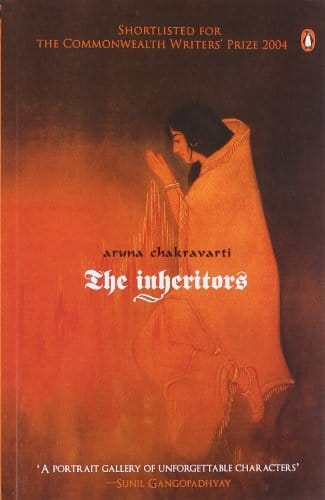WELCOME TO MIDLAND BOOK SHOP!
SHOP FOR
- Contemporary Fiction
- Contemporary Fiction
- Children
- Children
- Comics & Graphic Novels
- Comics & Graphic Novels
- Non-Fiction
- Non-Fiction
- Fiction
- Fiction
Shop No.20, Aurobindo Palace Market, Hauz Khas, Near Church +91 9818282497 | 011 26867121 110016 New Delhi IN
Midland The Book Shop ™
Shop No.20, Aurobindo Palace Market, Hauz Khas, Near Church +91 9818282497 | 011 26867121 New Delhi, IN
+919871604786 https://www.midlandbookshop.com/s/607fe93d7eafcac1f2c73ea4/676a925de6f825019b0470ed/instagram-post-3--480x480.jpeg" [email protected]9780143032168 60ad0ac7a4cf971279fc9015 The Inheritors https://www.midlandbookshop.com/s/607fe93d7eafcac1f2c73ea4/60ad0ac9a4cf971279fc9027/9780143032168-us.jpg From the ritual-bound household of an orthodox scholar in a small village in Bengal in 1897 to Germany and Mumbai at the turn of the new millennium, The Inheritors follows the shifting life patterns of a family through a melange of narratives, memories and characters. The unrelenting puritanism of Nyayaratna Bishnupada Deb sharma drives his daughter Radharani to insanity and throws into sharp relief his grandson Shibkali's feeble attempt to break free. Giribala voices her resentment against her circumstances through a lifetime of silence, her destiny finding an echo in her daughter. Alo, tragic victim of her husband's sexual perversions. And Pramatha's depraved radicalism is set against Shashishekhar's progressive outlook which symbolizes the most significant departure from the stifling constraints of his community. Even as it inherits the deadwood of the past, each generation strives to liberate itself, setting the stage for the eternal conflict between tradition and change, between a legacy and its inheritors. Aruna Chakravarti draws upon history and myth, religion and folklore, rituals and culinary practices to create a vivid portrait of a community of Vaidic Kulin Brahmins. The narrative, oscillating back and forth in time, weaves a vibrant tapestry of life – differing ideologies and sensibilities, suicides and desertions, marriages and infidelities, bigotry and liberalism – independence and a society caught on the cusp of conservatism and modernity. 9780143032168
in stockINR 360
1 1
Email ID already exists!
Your Current password is incorrect
Password Updated Successfully
Thanks for your Feedback
The Inheritors
ISBN: 9780143032168
₹360
₹450 (20% OFF)SIZE GUIDE
Sold By: Hauz Khas - Aurobindo Market
Details
- ISBN: 9780143032168
- Author: Aruna Chakravarti
- Publisher: Penguin
- Pages: 356
- Format: Paperback
Book Description
From the ritual-bound household of an orthodox scholar in a small village in Bengal in 1897 to Germany and Mumbai at the turn of the new millennium, The Inheritors follows the shifting life patterns of a family through a melange of narratives, memories and characters. The unrelenting puritanism of Nyayaratna Bishnupada Deb sharma drives his daughter Radharani to insanity and throws into sharp relief his grandson Shibkali's feeble attempt to break free. Giribala voices her resentment against her circumstances through a lifetime of silence, her destiny finding an echo in her daughter. Alo, tragic victim of her husband's sexual perversions. And Pramatha's depraved radicalism is set against Shashishekhar's progressive outlook which symbolizes the most significant departure from the stifling constraints of his community. Even as it inherits the deadwood of the past, each generation strives to liberate itself, setting the stage for the eternal conflict between tradition and change, between a legacy and its inheritors. Aruna Chakravarti draws upon history and myth, religion and folklore, rituals and culinary practices to create a vivid portrait of a community of Vaidic Kulin Brahmins. The narrative, oscillating back and forth in time, weaves a vibrant tapestry of life – differing ideologies and sensibilities, suicides and desertions, marriages and infidelities, bigotry and liberalism – independence and a society caught on the cusp of conservatism and modernity.
User reviews
NEWSLETTER
Subscribe to get Email Updates!
Thanks for subscribing.
Your response has been recorded.

India's Iconic & Independent Book Store offering a vast selection of books across a variety of genres Since 1978.
"We Believe In The Power of Books" Our mission is to make books accessible to everyone, and to cultivate a culture of reading and learning. We strive to provide a wide range of books, from classic literature, sci-fi and fantasy, to graphic novels, biographies and self-help books, so that everyone can find something to read.
Whether you’re looking for your next great read, a gift for someone special, or just browsing, Midland is here to make your book-buying experience easy and enjoyable.
We are shipping pan India and across the world.
For Bulk Order / Corporate Gifting
 +91 9818282497 |
+91 9818282497 |  [email protected]
[email protected]
Click To Know More
INFORMATION
ACCOUNT
QUICK LINKS
ADDRESS
Midland Book Shop - Hauz Khas
Shop No.20, Aurobindo Palace Market, Near Church, New Delhi
Shop No.20, Aurobindo Palace Market, Near Church, New Delhi














